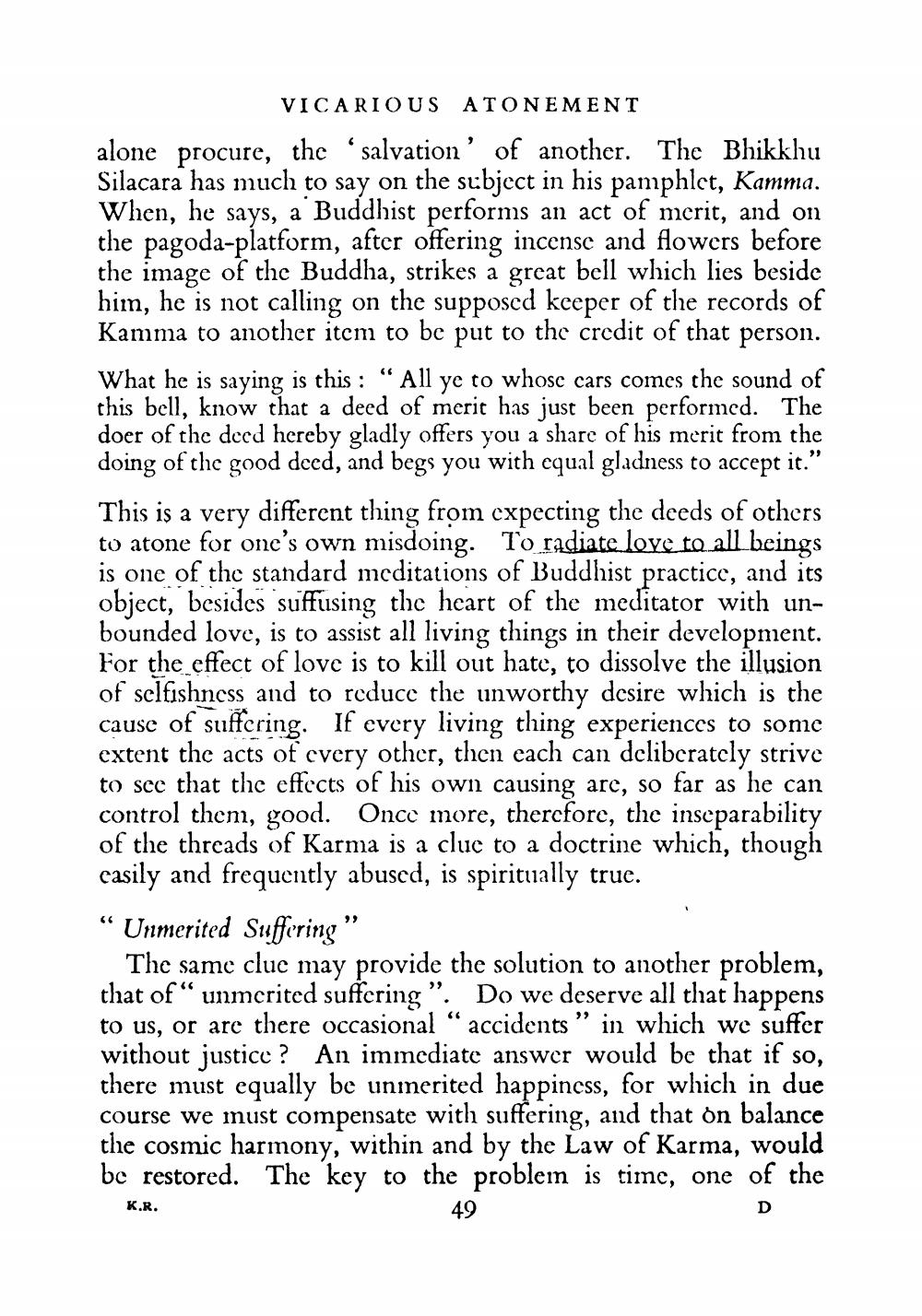________________
VICARIOUS ATONEMENT alone procure, the ‘salvation' of another. The Bhikkhu Silacara has much to say on the subject in his pamphlet, Kamma. When, he says, a Buddhist performs an act of merit, and on the pagoda-platform, after offering incense and flowers before the image of the Buddha, strikes a great bell which lies beside him, he is not calling on the supposed keeper of the records of Kamma to another item to be put to the credit of that person. What he is saying is this : “All ye to whose cars comes the sound of this bell, know that a deed of merit has just been performed. The doer of the deed hereby gladly offers you a share of his merit from the doing of the good deed, and begs you with equal gladness to accept it." This is a very different thing from expecting the deeds of others to atone for one's own misdoing. To radiate love to all beings is one of the standard meditations of Buddhist practice, and its object, besides suffusing the heart of the meditator with unbounded love, is to assist all living things in their development. For the effect of love is to kill out hate, to dissolve the illusion of selfishness and to reduce the unworthy desire which is the cause of suffering. If every living thing experiences to some extent the acts of every other, then each can deliberately strive to see that the effects of his own causing are, so far as he can control then, good. Once more, therefore, the inseparability of the threads of Karma is a clue to a doctrine which, though casily and frequently abused, is spiritually true. “Unmerited Suffering"
The same clue may provide the solution to another problem, that of“ unmerited suffering”. Do we deserve all that happens to us, or are there occasional “accidents” in which we suffer without justice ? An immediate answer would be that if so, there must equally be unmerited happiness, for which in due course we must compensate with suffering, and that on balance the cosmic harmony, within and by the Law of Karma, would be restored. The key to the problem is time, one of the
K.R.
49




